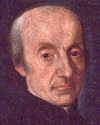The library is worth a visit. Among many other tidbits about the Truman legacy, there's a series of notes and letters about his failed attempt to enact a national health system modeled on Britain's. Medicare was sort of a remnant, a surviving piece, of that effort.
There are so many songs about growing old. Most of them are kind of maudlin. I'm generally opposed to nostalgia. I think it can be unhealthy to romanticize the past. We should certainly learn from the past and sometimes celebrate the past, but let's not get stuck there in some kind of fog, OK?
This John Mellencamp tune is a fine example of misplaced nostalgia.
Mellencamp grew up near Bloomington, Indiana. In college, I was the drummer in a band that featured Mellencamp's one-time keyboardist. We played some dives in Linton, Loogootee, Bedford, and Oolitic. We were not very good. See what I mean about nostalgia?




